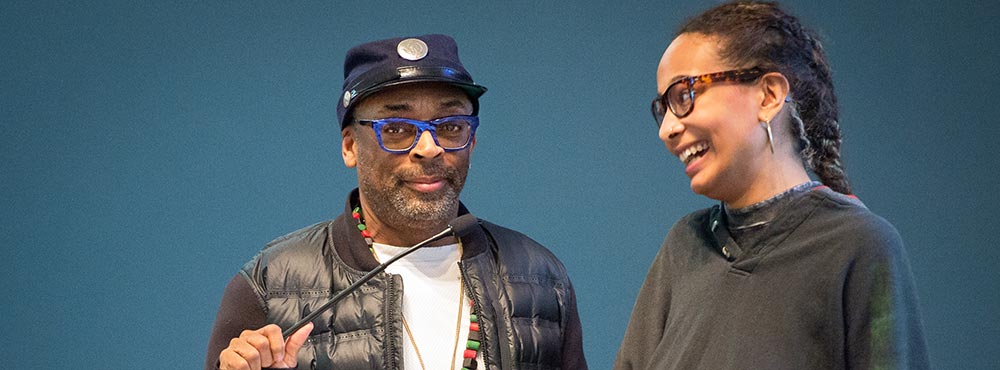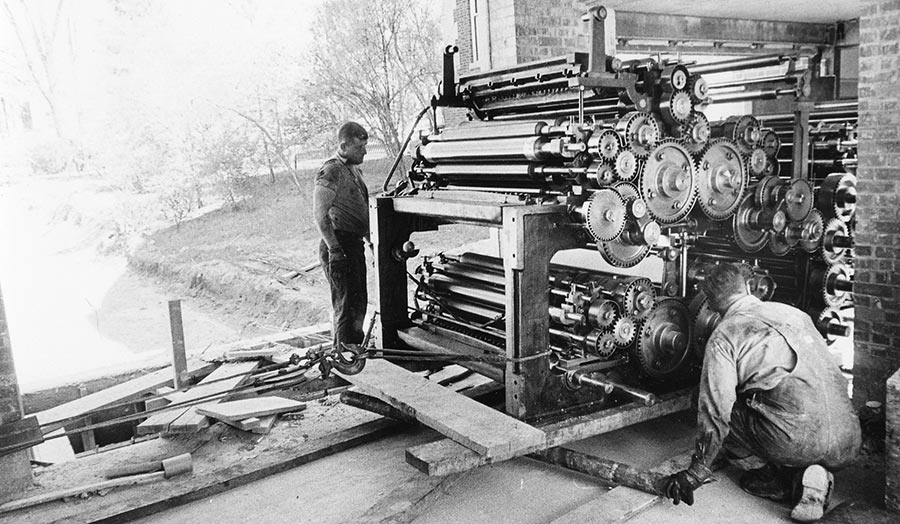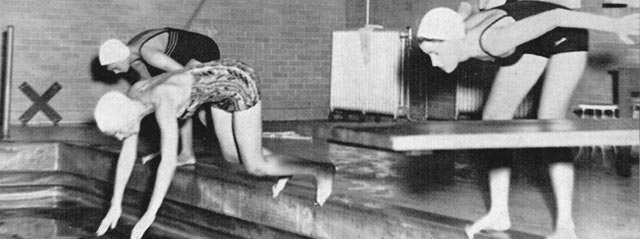
Tag: Barrett Golding
Documentary class in session at RJI with Professor Spike Lee
A highlight of my RJI stay happened last week, 30 feet from my office. Spike Lee gave a master class to documentary and photojournalism students. He was in Columbia, Missouri, to premiere “2 Fists Up: We Gon Be Alright,” a new ESPN documentary on racial unrest at the University of Missouri that uses footage from the … Continued
How to make online news ‘brain friendly’
Online news can work with or against the brain. When RJI Fellows Alex Remington of The Washington Post and media researcher Paul Bolls applied brain science principles to news design, readers’ comprehension, recall and engagement increased. We interviewed the researchers (audio below) to learn how to make articles “brain friendly.” It’s all about the “reading path,” says Remington. “Classify the … Continued
WordPress moves news past the printed newspaper
Local newspaper sites have long broken all the rules for building a sticky site. Most still load painfully slowly. They are difficult to navigate and — let’s be honest — often ugly.—Matthew Hindman, Shorenstein Center For centuries newspaper design has stayed about the same. In 1880 printers introduced halftone photographs and in the 1980s the … Continued
Need for speed 2: Newspaper data diving, metrics and methodologies
Welcome to the weeds, fellow bit-twisters and data divers. We can chat here without worrying about the numeracy nonbelievers. This post details the methodologies used in “Need for speed 1: Newspaper load times give ‘slow news days’ new meaning.” First, you and I both know “load time” is a fickle metric, completely dependent on the … Continued
New RJI Fellow to develop suite of apps to help streamline workflow of community journalists
A 2015-2016 RJI Fellow wants to streamline the workflow in small- to mid-sized newsrooms by creating apps to assist journalists in their day-to-day tasks. These tasks could range from fact-checking and finding free images to creating immersive multimedia presentations and previewing mobile versions of their articles. The project will put “big-media tools” into the hands … Continued
RJI announces its 2015-2016 class of fellows
From exploring journalistic opportunities for wearable technology to helping smaller community newspapers provide digital services for advertisers, the ninth fellowship class of the Donald W. Reynolds Journalism Institute continues RJI’s commitment to nurturing and strengthening journalism’s service to citizens and their communities. This year’s residential, nonresidential and institutional fellowships were chosen from among 225 applicants … Continued





